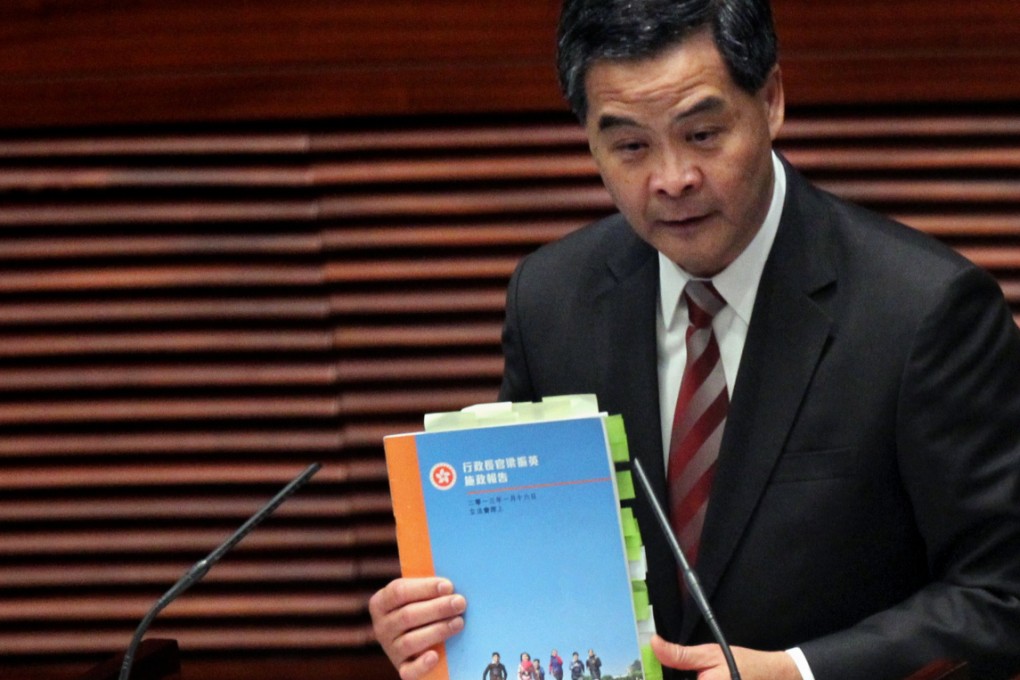CY Leung's policy address deserves praise for thoughtful anti-poverty measures
Bernard Chan says for some critics, the government can never do right

After reading and listening to various responses to Chief Executive Leung Chun-ying's policy address last week, I am convinced some people are impossible to please. I am not talking about those who say the middle class or small business should get more, or who are impatient for solutions to big problems like housing or pollution. To some extent, these people have a point.
I am thinking of media outlets and groups that say they want something, but still criticise when they get it. For example, some environmental groups accept that the government needs to find more land to meet long-term housing needs. But every time the administration comes up with a proposal - use of the New Territories, reclamation or increases in density - they say it is unacceptable.
Some media outlets have a track record of attacking past governments for lack of action against poverty, especially for relying on one-off handouts and short-term subsidies. Last week's policy address represented a real shift away from this approach, particularly in establishing a system to help low-income working families. But, amazingly, the same media voices are still critical.
They accuse this government of being reckless by increasing recurrent spending on welfare. One newspaper that usually argues against inequality accused the government of "bribing voters" for proposing scholarships to help needy students study overseas. It seems that some people just want the government to be wrong, whatever it does.
Fortunately, some groups give credit where it is due. This year, the Hong Kong Council of Social Service, which I chair, has voiced support for several of the administration's plans to assist the underprivileged. In fact, the council recommended most of these measures in part or in full, and the administration adopted the ideas.
The one that received the most publicity is the HK$3-billion-a-year plan for a low-income working families' allowance. It is easy to say that this measure is insufficient, but it is a major step forward in establishing a practical system to give over 700,000 people - especially those with children - a helping hand. This new system could point the way for future reforms in welfare generally.